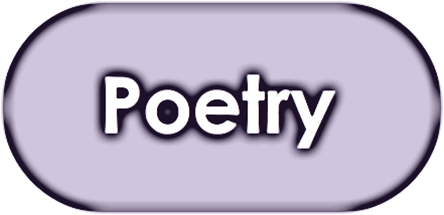Elul Unbound: Wildcards
Shabbat Shalom! On Saturdays during Elul, we are mixing it up a bit. While each other day of the week will stay within one category (videos, poetry, etc), Saturdays will be "wildcard" days, so you won't know what to expect. Scroll down to explore these wildcards and connect to the month of Elul in the process!
Week 1: Spotifying Elul
For the first wildcard of Elul, we are sharing this playlist with you, created by Wendie Lash, our collaborator on Elul Unbound. Click the play button below, and you'll be treated to five songs relating to themes of this month.
Week 2: An Elul Meditation
Our wild card for this week is a meditation, created by Wendie Lash, which you can use today, any day this month, and beyond. Access it by clicking the play button below:
The meditation starts and ends with a chant of the Hebrew word “Hineini.” Hineini means “Here I am.” It is a word in the Torah spoken by Moses and other prophets in response to a call from from God/YHVH/Beingness. Hineini is a good reminder to wake up and be present in the now. Ask yourself “Where am I right now/this month/this year?” Then take a pause - take a breath - and see if you can respond: “Hineini! I’m present with my experience here in this moment.”
We need the sweet pain of anticipation to tell us we are really alive.” ― Albert Camus
Questions for Reflection:
1 ) Do you need to put more energy and effort into being present in the moment, or into taking time to prepare?
2) Is Elul helping you to be more present in each day? If so, how? If not, what could change to make that the case?
Week 3: An Elul Soundtrack
Our "Wildcard" for Week 3 is a selection of songs written specifically with Elul in mind, by a variety of Jewish artists. The first track we are sharing comes from singer/songwriter Beth Hamon, and is entitled "Achat Shaalti" (meaning "One thing I ask"). Listen to it by clicking play below.
We also highly recommend that folks check out the ten tracks that are available through Elul: Songs for Turning, which you can listen to below and/or purchase here.
Week 4: Mussar
Today, as our fourth wildcard, we want to introduce you to the Jewish spiritual practice of Mussar. Mussar is a Jewish framework for spiritual development, first organized in the early 19th Century in Europe. Mussar practice focuses on one individual trait ("middah" in Hebrew) at a time, ranging from humility, to patience, to gratitude. In the last few decades, a variety of contemporary Mussar practices have emerged to encourage seekers to tap into these potentially transformative practices. For Elul, we are focusing on the middah of forgiveness ("slikha" in Hebrew).
Below you will find a variety of Mussar practices, for you to play and experiment with today and in the future.
1) A Meditation for Releasing Judgement
Close your eyes and sit quietly. Pay attention to your breathing. As you quiet your mind, envision a teeter-totter, with a fulcrum or balance point in the middle. On your left is the seat of judgment; on your right is the seat of compassion. Think about a relationship where you feel judgment of the other or yourself. When you have that firmly in your mind, imagine yourself sitting on the seat of judgment, on the left side of the teeter-totter.
Since all of your weight is in the seat of judgment, you are sitting on the ground. The empty seat of compassion is all the way up in the air! Now, imagine yourself getting off the teeter-totter and walking around to sit on the seat of compassion. As you pull down the teeter-totter to sit on the seat of compassion, notice that the seat of judgement is now way up in the air. It is empty.
Now focus again on your breath. With each breath you take, imagine your judgments washing away from you. Focus your breathing in your heart area, and breathe compassion into that area. As you breathe, let the warmth of the compassion in your heart flow out into the rest of your body. When you are ready you can open your eyes, and return to your surroundings.
2) A Morning-Intention Chant
Repeat this for a few minutes in the morning, as early as you can. Feel free to use any melody you like that fits with the words, or you can simply speak the words aloud:
I am present with an open heart,
I open my heart to myself and others.
I let go of my faults and the faults of others,
My compassion defeats my judgement.
It is comforting to forgive myself and others,
May any judgments I create not stick to me today.
3) Cheshbon Hanefesh (An "Accounting of the Soul")
Journal in the evening before you go to bed, focusing on on these questions:
1) In what ways has the month of Elul been challenging for you? In what ways has it been easy?
2) Has Elul moved you towards greater compassion for yourself? For others? Both? Neither?
3) In what situations do you sometimes lose your footing (metaphorically)? How might you prepare for these slippery places in the future?
4) Additional Mussar Resources
http://www.hadassahmagazine.org/2017/01/12/mussar-jewish-spirituality-modern-world/
https://rabbidavidjaffe.com
https://mussarinstitute.org
www.americanmussar.com
https://www.womensvaad.com











